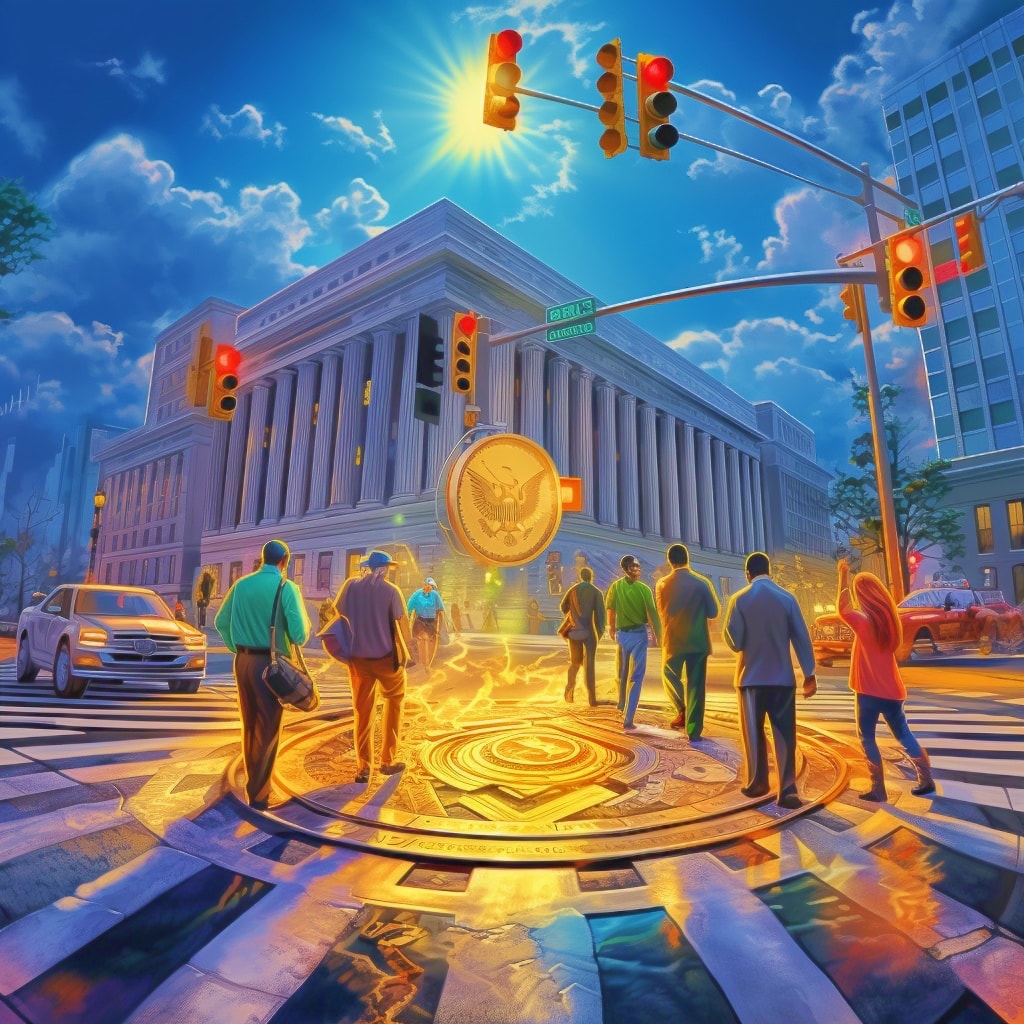Welcome, and thank you for being part of the MyZucoins community! Let’s get into an interesting piece of crypto, finance, or tech news to stay ahead.

US Dollar Going Digital? Not So Fast, Says Congress
The U.S. House Financial Services Committee is pushing ahead with two crucial bills aimed at putting a hold on creating a digital dollar by the central bank.
Chairman Patrick McHenry announced that lawmakers will gather on 20 September 2023 to discuss these bills’ specifics. This discussion, called a markup, is an important part of lawmaking.
The first piece of legislation in question, the Digital Dollar Pilot Prevention Act, seeks to put the brakes on the Federal Reserve’s ability to test digital currencies without getting a green light from Congress.
This bill was initially proposed by Representative Alex Mooney back in May.
Interestingly, the Federal Reserve has stated it wouldn’t go ahead with a digital dollar without legal authorization. Yet, the San Francisco branch of the Fed has been on a hiring spree for technical roles related to a digital currency project, hinting that the idea is still very much in play.
The second bill on the docket seeks to amend the Federal Reserve Act.
This modification would prevent Fed banks from offering certain products or services directly to individuals and would also block the use of digital currencies for controlling the economy or other goals.
The idea of a digital dollar has caused quite a stir.
High-profile figures such as presidential candidates Robert F. Kennedy Jr. and Ron DeSantis have voiced their opposition, citing worries over financial privacy.
On the other hand, supporters argue that a digital dollar could help maintain the global status of the US dollar and could encourage more people to use cryptocurrencies. Read more here.
Governments are pushing for more centralization, surveillance, and control through CBDCs.
Are CBDCs a leap into the future or a privacy nightmare?
More Pathways For Zucoins And Splitchain
In light of the legislative pushback against the central bank digital currency (CBDC) in the United States, Zucoins and its Splitchain network can emphasize their independence from central banking systems.
Unlike a CBDC directly tied to a nation’s central bank, Zucoins operates on a peer-to-peer network.
This decentralization can be a strong selling point, as it aligns with the fundamental ethos of cryptocurrencies – freedom from centralized control.
Cryptocurrencies have proven they can operate across borders, as a far more efficient and international form of value exchange.
Another opportunity lies in navigating the concerns over financial privacy, which are prominent in the debates surrounding the digital dollar.
Zucoins and Splitchain, with their two-way transaction system and two-factor authentication, offer a higher level of safety and control to users.
The system allows for transaction confirmation from both parties, which could alleviate privacy concerns as a third party doesn’t have to process your transactions, then determine if you’re allowed to transact using a hit-and-miss fraud system.
Zucoins passed Australia’s anti-terrorism and anti-money laundering review from the Austrac government regulator.
When you transact with other people on the Splitchain network, it’s done using two-factor transactions. So, the responsibility is between the sender and the receiver—not the protocol that caches temporary information, as the Splitchain network does, in case your phone is turned off, the mobile signal drops or the app is closed.
Highlighting this feature could attract independence and privacy-focused users who are wary of CBDCs.
Having so much of your private details directly tied to a government body, as history teaches us, is only a matter of time until it’s abused.
For example, it occurred recently as revelations of law enforcement agencies getting access to private pandemic lockdown user data. This broke the original public promise to keep this collected data isolated and private.
Finally, the idea of a digital dollar has continued to stir up debates about the global relevance of the US dollar.
Is this a strategy by the US to maintain control over the US dollar as the global reserve currency? Who knows.
While Zucoins and Splitchain cannot directly influence this, they can contribute to the broader conversation around digital currencies, digital assets, and their role in the global economy.
By promoting the benefits of their own digital currency, such as the possibility of micro-transactions, two-factor safety and no network fees, they can champion the numerous advantages of digital currencies in general.
If you liked this newsletter, please forward it to someone who might like it too.
You can also donate here or even buy some Zucoins. Every little bit helps us improve.
What did you think of this newsletter? Reply to send us feedback on what you liked or want to see featured more. There’s more coming, so stay tuned.
—
All the best,
Peter & Rob
MyZucoins
Disclaimer: Of course, this is not advice, financial or otherwise. It’s also important to consider the risks and challenges associated with any potential benefits.